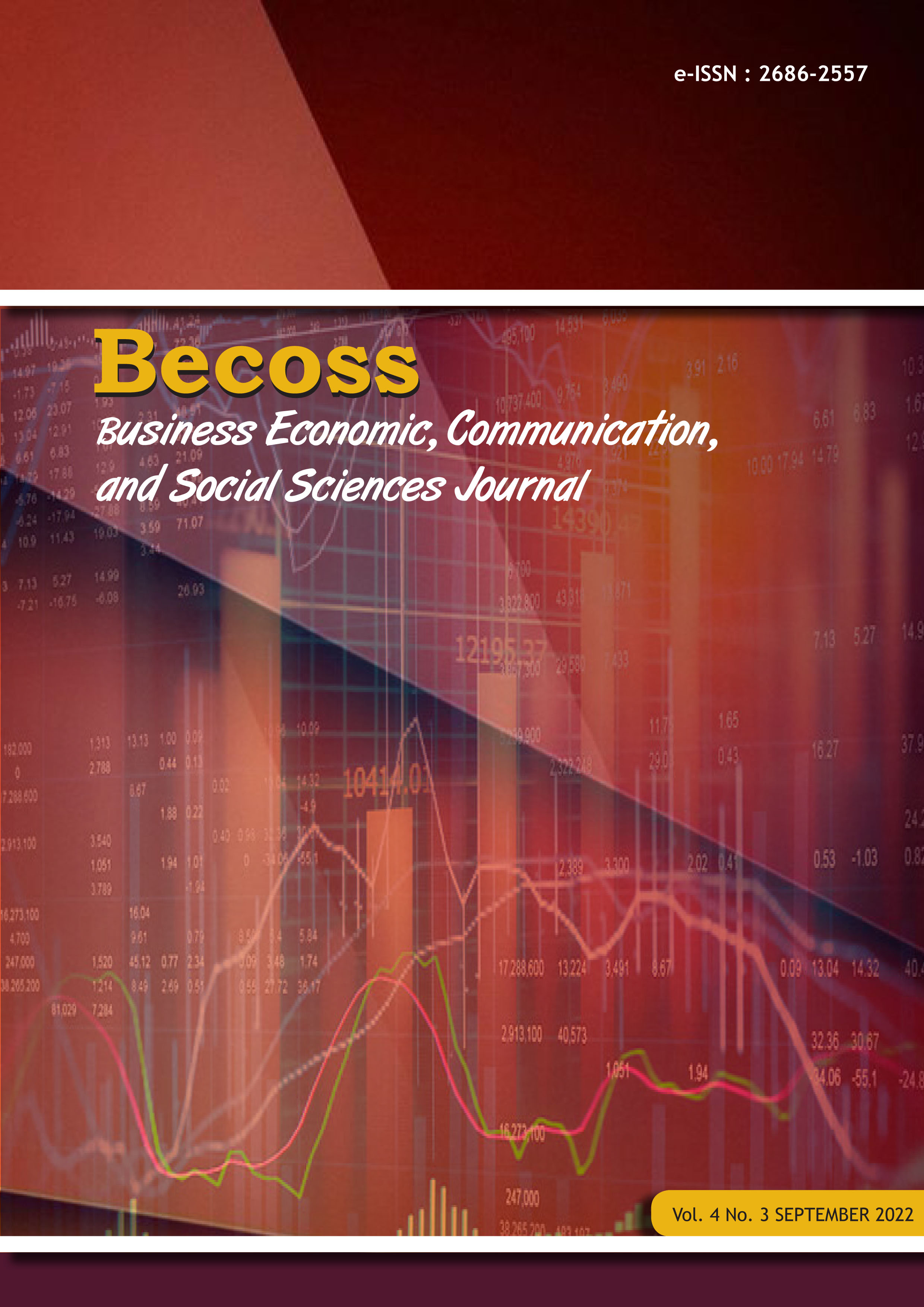The Effect of Sleep Time and Learning Duration on Student’s Achievement
DOI:
https://doi.org/10.21512/becossjournal.v4i3.8632Keywords:
Study Time, Sleep Time, Grade Point Average (GPA)Abstract
The study was conducted to determine the relationship between study time and sleep time with the Grade Point Average (GPA). Data collection used as many as 103 respondents with a student background majoring in Industrial Engineering at Bina Nusantara University. The results of descriptive statistics show that the average respondent uses 1 to 2 hours of study time per day. The results of descriptive data processing show that the average respondent uses 5 to 7 hours of sleep per day. Inferential statistical results with a correlation test show that there is a correlation between learning activities and sleep with the GPA of Industrial Engineering students at BINUS University. The reliability test showed that there was a correlation between the frequency of sleepiness and the concentration level of students with the acquisition of a Cronbach Alpha score of 0.7277. The reliability test shows that there is a correlation between hours of sleep and the frequency of using the alarm with a Cronbach Alpha value of 0.6363. The reliability test shows that there is a correlation between GPA and the duration of student self-study with a Cronbach Alpha value of 0.6575.
References
Anggrawan, A. (2019). Analisis Deskriptif Hasil Belajar Pembelajaran Tatap Muka dan Pembelajaran Daring Menurut Gaya Belajar Mahasiswa. Jurnal MATRIK, 18(2), 339-346. doi:10.30812/matrik.v18i2.411
Aryadi, I. H., Yusari, I. A., Dhyani, I. A., Kusmadana, I. E., & Sudira, P. G. (2018). Korelasi Kualitas Tidur terhadap Tingkat Depresi, Cemas, dan Stres Mahasiswa Kedokteran Universitas Udayana. Callosum Neurology, 1(1), 10-15.
Haqqu, R. (2020). Uji Uses and Gratifications dalam Intensitas Menonton Program Talk Show melalui Televisi. Journal of Strategic Communication, 10(2).
Hidayat, A. (n.d.). Penjelasan Lengkap ANOVA sebagai Analisis Statistik. Retrieved from Statiskian.com: https://www.statistikian.com/2017/06/anova-sebagai-analisis-statistik.html
Purhadi, L. I., Anisa, R., & Firmansyah, M. (2020). Korelasi antara Kualitas Skenario dan Keefektifan Diskusi Tutorial terhadap Prestasi Akademik Mahasiswa. Jurnal Bio Komplementer Medicine, 7(2).
Putri, C. P., Mayangsari, M. D., & Rusli, R. (2018). Pengaruh Stres Akademik Terhadap Academic Help Seeking Pada Mahasiswa Psikologi UNLAM dengan Indeks Prestasi Kumulatif Rendah. Jurnal Kognisia, 28-37.
Putri, S. A., Dasuki, B. I., & Agustina, T. (2021). Hubungan Pola Tidur dan Tingkat Stres dengan Prestasi Mahasiswa FK UMS Selama Perkuliahan Online. The 13th University Research Colloqium 2021, 158-165.
Rifai, C. F., Utami, D., & Farich, A. (2020). Kualitas Tidur dan Kestabilan Emosi dengan Hasil Prestasi Belajar pada Mahasiswa Fakultas Kedokteran. Jurnal Ilmiah Kesehatan Sandi Husada, 72-77.
Sari, B. T. (2019). Pengaruh Durasi Belajar Terhadap Hasil Belajar Matematika Siswa Kelas 5 Ledok 006 Salatiga. Jurnal Review Pendidikan Pengajaran, 139-144.
Wahyuni, N. (2014, November 01). BINUS University. Retrieved from https://qmc.binus.ac.id/2014/11/01/u-j-i-v-a-l-i-d-i-t-a-s-d-a-n-u-j-i-r-e-l-i-a-b-i-l-i-t-a-s/
Downloads
Published
How to Cite
Issue
Section
License
Copyright (c) 2022 Business Economic, Communication, and Social Sciences (BECOSS) Journal

This work is licensed under a Creative Commons Attribution-ShareAlike 4.0 International License.
Authors who publish with this journal agree to the following terms:
- Authors retain copyright and grant the journal right of first publication with the work simultaneously licensed under a Creative Commons Attribution License - Share Alike that allows others to share the work with an acknowledgment of the work's authorship and initial publication in this journal.
- Authors are able to enter into separate, additional contractual arrangements for the non-exclusive distribution of the journal's published version of the work (e.g., post it to an institutional repository or publish it in a book), with an acknowledgment of its initial publication in this journal.
- Authors are permitted and encouraged to post their work online (e.g., in institutional repositories or on their website) prior to and during the submission process, as it can lead to productive exchanges, as well as earlier and greater citation of published work.
USER RIGHTS
All articles published Open Access will be immediately and permanently free for everyone to read and download. We are continuously working with our author communities to select the best choice of license options, currently being defined for this journal as follows: Creative Commons Attribution-Share Alike (CC BY-SA)






